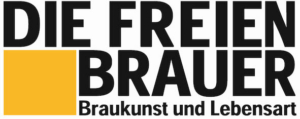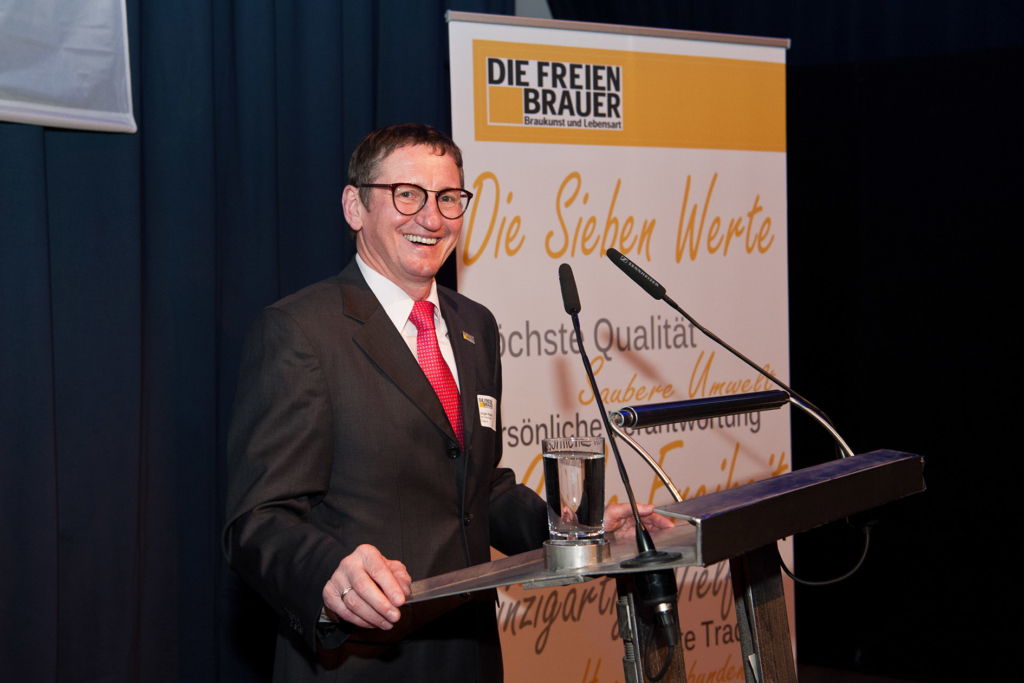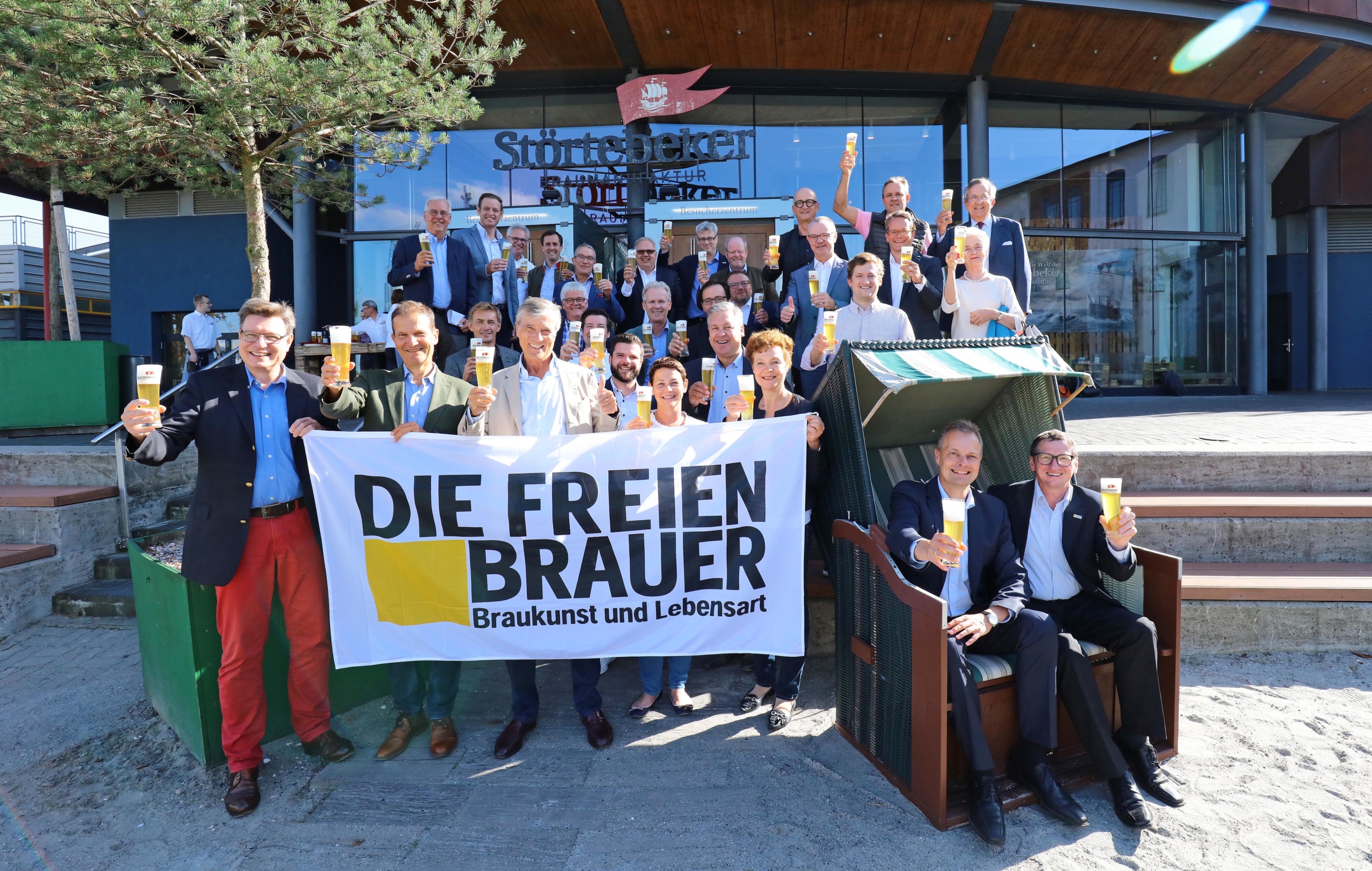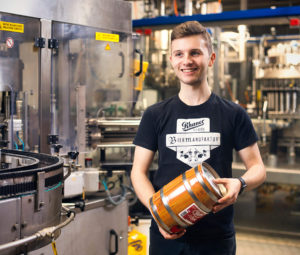“No one is as smart as all working together.” Managing Director Jürgen Keipp sees the “swarm intelligence” of its partners as the greatest strength of the entrepreneurial initiative “Die Freien Brauer” (The Free Brewers). 44 leading family-owned breweries from Germany, Austria and Luxembourg have joined together to “preserve the art of brewing and the way of life”. But what does that mean in concrete terms? “We support each other in many different ways,” explains Jürgen Keipp. Over the network, people exchange experiences and share each other’s knowledge – from sales and marketing to technology and personnel issues. “An important topic for family businesses is also always the generational change or the succession issue,” Jürgen Keipp knows. Here, too, the initiative provides support by organizing cross-coaching or mentoring programs for the respective juniors. And “The Free Brewers” also utilize synergies in their day-to-day work, for example through collaboration models in production, bottling, and logistics. However, the main focus is on economic cooperation, which is also where the initiative originated.
The Free Brewers: Family breweries work together
 The Free Brewers date back to the German Brewing Cooperation founded in 1969. The family breweries Thier, Krombacher, Licher and Herforder had joined together at that time in order to defy the plans of the Oetker company, which wanted to establish a national Pils brand. When the Oetker plan flopped, however, the four also buried their concept for the joint “Konsul” beer brand. However, the alliance remained in place, focused on joint purchasing in the future and even grew to include more than 20 family breweries. From 1991, companies from neighboring German-speaking countries also joined in. Working together in the procurement of raw materials and supplies, jointly selecting suppliers and negotiating contracts is still of great benefit to the partners today.
The Free Brewers date back to the German Brewing Cooperation founded in 1969. The family breweries Thier, Krombacher, Licher and Herforder had joined together at that time in order to defy the plans of the Oetker company, which wanted to establish a national Pils brand. When the Oetker plan flopped, however, the four also buried their concept for the joint “Konsul” beer brand. However, the alliance remained in place, focused on joint purchasing in the future and even grew to include more than 20 family breweries. From 1991, companies from neighboring German-speaking countries also joined in. Working together in the procurement of raw materials and supplies, jointly selecting suppliers and negotiating contracts is still of great benefit to the partners today.
Common values as the foundation of economic cooperation
In 2005, due to the rapid changes in the beer market, the German Brewing Cooperation decided to channel its ambitions and goals and thus actively approach the public. In March 2006, it therefore founded the initiative Die Freien Brauer (The Free Brewers), which was continuously developed in the following years. “At a time when the brewing idyll was increasingly being caught up by capital-driven companies, our family brewers deliberately wanted to set a counterpoint.” After all, “The Free Brewers” see themselves not just as a business cooperation, but as a “community of companies with the same interests and values.” What all the family breweries in the initiative have in common is their commitment to free enterprise, a sense of quality, and a great sense of responsibility toward their partners and the people in their region.
When it comes to beer culture, “The Free Brewers” get involved

Jürgen Keipp, Managing Director “The Free Brewers” (der Freien Brauer)
“The Free Brewers” have laid down “seven values” as the basic principles of their community. Each brewery decides individually how to put these into practice. However, the partners actively exchange information about their activities with each other – without any suspicion. “If colleagues “steal ideas” when it comes to values, they are even happy about it,” Jürgen Keipp knows. Depending on the size of the company, each partner has a correspondingly weighted vote within the initiative. The Free Brewers do not see themselves as an association and therefore leave economic and sociopolitical industry issues to the Brewers’ Association and the State Associations. They only interfere when the interests of family breweries and beer culture are affected. “No patents on seeds,” for example, is a current concern of these family breweries. This is because several large corporations are trying to patent certain barley varieties and their beers. The Free Brewers see this as limiting the diversity of varieties of the already narrow malting barley in the medium term and are therefore raising their voices.
“The Free Brewers” do not admit everybody
In order to be admitted to the Free Brewers, a company must fulfill a number of criteria. Therefore, there is a separate evaluation system consisting of mandatory and optional criteria, which is used to decide on the application for admission or the proposal. The size of the company is not crucial, but its importance in the region and its perception as a family brewery are. Keipp admits, however, that breweries under 100,000 hectoliters of annual output are rarely considered because of the extensive list of criteria and a minimum number of points that must be achieved. “Each partner has to bring a certain added value.” On average, only one of about three to four breweries that go through the evaluation process each year can be accepted. “We want each new member to have time to grow into the community. If we got too big too fast, it would be to the expense of personal trust.” Which is exactly what our cooperation is based on, emphasizes Jürgen Keipp. “Real friendships have developed in our organization!”
Family breweries think in generations
The past few months have not been easy for the brewing industry, Keipp sums up. Corona and other developments, such as the drop in prices in the food retail sector and supply chain problems, have had a severe impact on breweries. Nevertheless, Jürgen Keipp is convinced that family breweries in particular are capable of mastering special challenges. “Family businesses do not think in terms of quarterly financial statements, but in terms of generations. They also understand to back off in difficult times and do everything they can for a balanced development in the long term.” According to Keipp, the “Seven Values” that “The Free Brewers” have adopted are the best foundation for this. He is therefore convinced: “Those who have done their homework today will also be successful in the future.”



